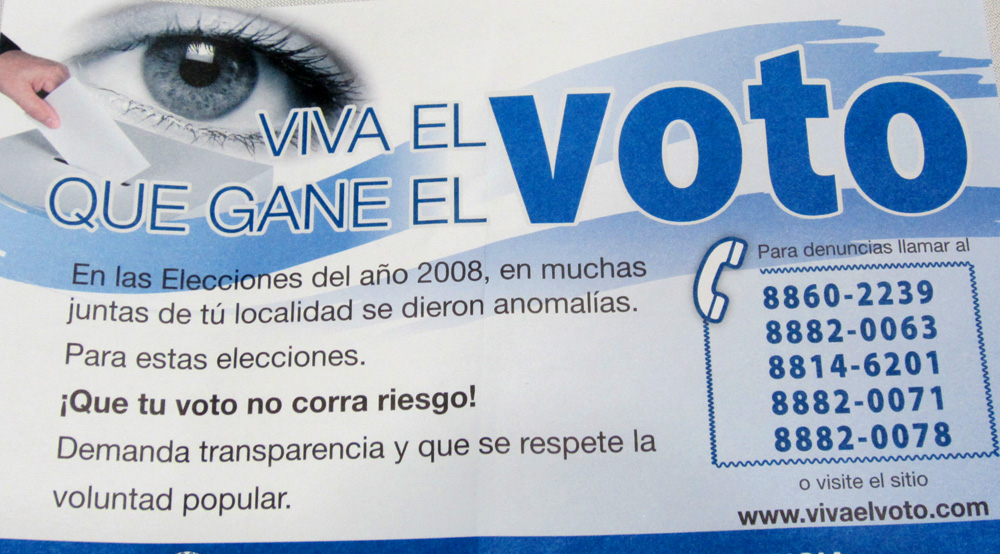Adapt and Evolve

How do civil society organizations, especially those used to years of relative political space, respond when a government restricts their activities? They get creative, using crowd-sourcing and data visualization to strengthen the impact of their activities.
The politicization of Nicaraguan institutions, controversial interpretations of the constitution, and the lack of impartiality of the election administration, have generated widespread public distrust.
Impartial observation of the electoral process had played an important role in ensuring that past elections were free and fair and building public confidence in the results of the process. Yet, beginning in 2008, independent domestic observers were not allowed to access polling stations, and individual polling station results were not made public.
In the last year, local groups have turned to alternative methods to assess the process, and have worked to enable citizens to participate effectively and hold the government accountable. In the pre-electoral period, the "Viva El Voto" project, supported by Etica y Transparencia and a coalition of Nicaraguan civil society, GPRE, used technology to accomplish the following:
1) Verify and publicize citizen “denuncias”: Trained observers interviewed citizens, collected evidence, and provided context to crowd-sourced reports which came in by phone, web, and SMS.
2) Publish historical election results: Using multi-year data collected from party poll watchers, the project provided the only source of election results for the last five cycles.
On Election Day, the project plans to continue publishing citizen reports, without verification, and to share copies of polling results for individual stations. Publishing these copies, termed “actas”, is an attempt to set an “Open Data” example for government transparency regarding individual polling station results.
Nicaraguan civil society in it’s ability to adapt to the changing political environment, and through its pursuit of data to support advocacy efforts, contributes to reform and builds pressure to re-build the independence and credibility of the Electoral Council and other institutions.
